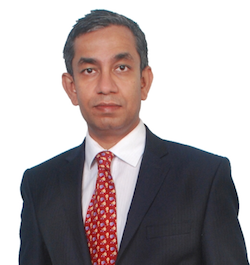India is making steady progress in the field of medical education and advancement. There are hundreds of medical colleges in the country attempting to create a work force for the future. A large number of them are doing a very good job too. Indian medical graduates are respected and admired all over the world for their talent, ability to work hard and adapt to new norms quickly. In terms of technology and its use, India is rapidly bridging the gap with advanced countries. How could India otherwise emerge as a major hub for medical tourism. The challenge now is to disseminate good practice and standardize training so that the “islands of excellence” don’t just remain that.
Options that a fresh pass out medical graduate has in India currently are:
i) To secure a place for further specialist training and competition for these places is intense;
ii) To work in the public sector as Medical Officers where remunerations are pathetic and opportunities for further training and career progression few;
iii) To migrate abroad;
iv) To work as an independent “General Practitioner (GP)”.
Those who undergo further specialist training and those who migrate abroad are fortunate enough to get further training, which will enable them to function effectively in their future professional life. However, the same fate does not befall the rest. They are left to cope by themselves having undergone little formal post-qualification training. This is all the more important in a country where standards of medical education are variable and in many places frankly abysmal. These new entrants are then competing with established experienced players and “quacks” to attract “business”. I have discussed problems of this “market” elsewhere. Here I wish to focus on the training aspects. In most advanced countries, there are mechanisms for all doctors to undergo post-qualification, hands-on, supervised training because a fresh pass out doctor does not have all that it takes to work independently in the increasingly complex world of modern medicine.
For those wishing to work in general practice, it can’t be impossible to develop courses involving further training by seniors in the field. This will ensure that fresh pass out doctors will have somewhere to go for further training, rather than having to fend for themselves. These courses should take into account the unique nature of general practice in India and must have a focus on rural India and the urban poor. There is no reason why private practitioners could not provide this training as long as the standards of training are met. A further reform needed is to start paying our fresh doctors at par with professionals in engineering and management and other walks of life, if we want to continue to attract the best. Public sector remunerations for doctors need radical reforms. At the same time, it should come with a considerably increased expectation from doctors to practice competently and ethically.
It’s not all too easy for those who enter specialist training either. As opposed to a period of 6-10 years that doctors have to train in developed countries to be given license to practice as a specialist, in India we are giving out these certificates of specialist training after 3 years. Most people in the profession know that the person created at the end of this training period is hardly a specialist. Those who are lucky enough to attract further opportunities for training as senior residents are able to get some further training but there is no standardised mechanism for this to happen universally across the country. Furthermore, even if you were lucky enough to get the job of a senior resident, what you earn as a senior resident can only be described as “peanuts”. By not paying these young doctors an adequate and fair remuneration, society is failing in its duty towards them and nudging them towards unethical practices.
Source: India Medical Times


